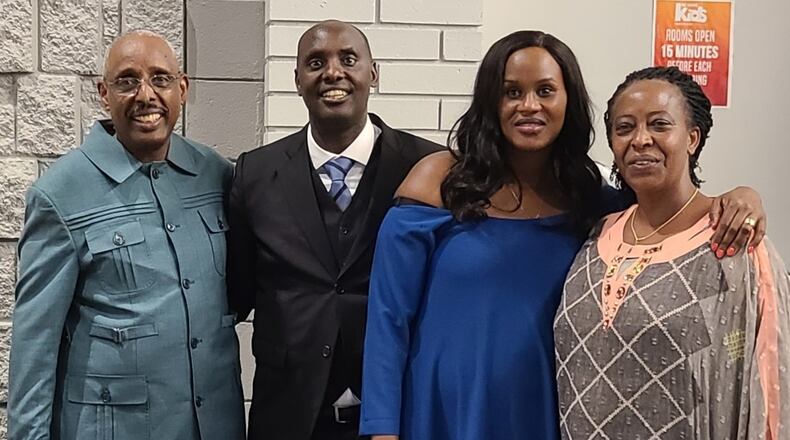Muvunyi grew up in the Democratic Republic of Congo, earned a bachelor’s degree in International Development from the Congolese Institute of Management, worked in Haiti and Africa, and moved to Rwanda five years after the 1994 genocide. There, he strove for development in communities affected by genocide, leading grassroots projects and lobbying government leaders and non-governmental organizations to work together. He came to the U.S. on behalf of the Association Rwandaise pour le Développement Rural in Rwanda to raise awareness about the ongoing problems of war and poverty in Central Africa. ARDR, founded by his brother, addresses poverty in Rwanda. In Ohio, Muvunyi created ARDR Allies to support ARDR financially.
Muvunyi understands refugees face obstacles in becoming oriented to new language, laws and society. He said many immigrant parents work two jobs and are unfamiliar with how U.S. schools work, so they can’t help their children with homework and have little time for enrichment activities.
Muvunyi said many immigrants obtain a car but neglect to buy insurance or get a driver’s license. They need help learning how to navigate aspects of U.S. life.
“I ask myself, ‘How can I be a bridge for young immigrants?’ ” he says. “How can I connect parents and kids, connect them with churches, be a bridge for immigrant families and this culture?”
Muvunyi speaks English fluently and has a working knowledge of nine more languages, helping immigrants and the agencies attempting to serve them. He credits his father, also a pastor, for exposing him to languages.
“Our house was like a hotel,” he said. “All kinds of people came to our home.”
Muvunyi said young immigrants can’t see a path to a successful future, often because of poor English skills. They may get involved in drugs and crime. Muvunyi notes society will end up paying if these young immigrants are not helped.
“In 10 years, it will be very hard if we don’t take care of this problem,” Muvunyi warns.
He says people should reach out to immigrants.
He knows lack of hope for the future is not unique to immigrant youth, so he also reaches out to at-risk youth in the wider Dayton community, in part because they live in the same neighborhoods and go to the same schools where many refugees are settled.
“I can feed African churches and American churches,” he says.
Muvunyi has a dream to create another Hope Center, seeking a building in the Belmont area, central for many area immigrants, and hoping to raise the money needed.
He also hopes to educate Dayton about the ongoing crises in DRC and Central Africa. DRC has been under continued attack from a coalition of militia and government military groups that fight defenseless citizens, he notes, often sexually assaulting and killing them for access to their land and valuable minerals. In 2011, he co-authored a book with Debra Lynn Heagy titled “Voice of Central Africa DR Congo” about people’s experiences of the 2004 massacre in the Gatumba refugee camp in Burundi. In 2014, he persuaded Wright State University film student Brad Wickham to create a documentary showing how agencies like ARDR fight poverty in Rwanda.
Muvunyi’s ordination celebration at Living Hope Church on July 25 included African immigrants, church members and visitors from Haiti and Rwanda. The Rev. Muke Nagaju, a former math teacher from Muvunyi’s high school, came from Rwanda. Several spoke at length — often emotionally — about the man with whom they had worked, taught or shared friendship.
Muvunyi said, “I was so proud to see so many people to come to honor me.”
Kari Carter is a member of the The Journalism Lab, a local citizen journalism group, and an instructor at Sinclair College.
About the Author

